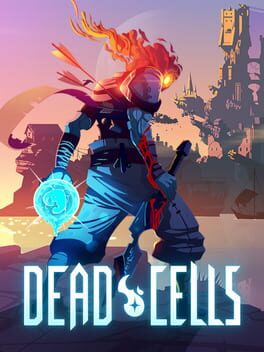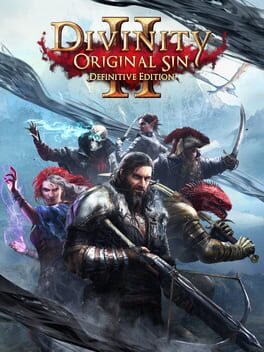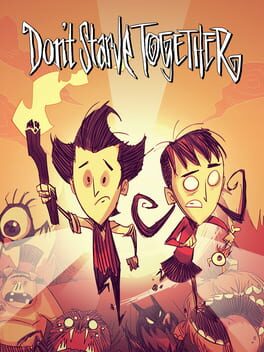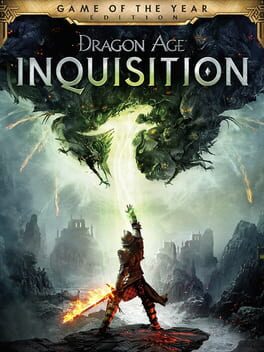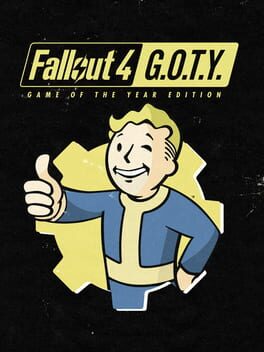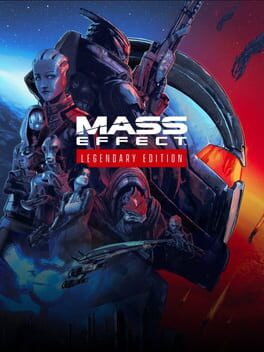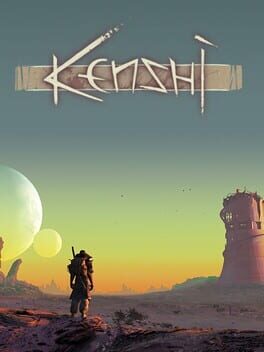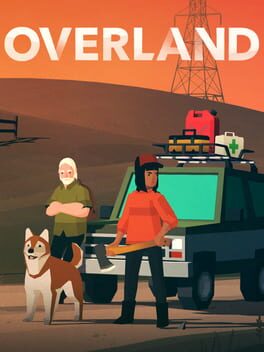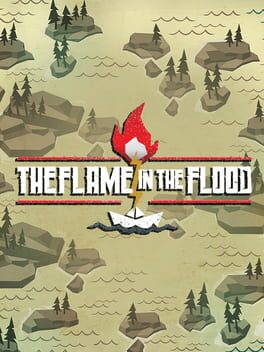Jaylus
BACKER
2020
Incredibly polished game with amazing mechanics, deeply satisfying combat, and a world of roleplaying possibilities. That said, for whatever reason I connect better emotionally to the stories and characters of RPG series like Mass Effect, Dragon Age, and Horizon: Zero Dawn. I stopped playing BG3 5-ish hours into Act III, and I don't feel compelled to finish it at this point.
2022
This is a gorgeous, rewarding, and brilliantly-written sci-fi RPG with poignant characters and a depth of meaning; I wish there were many more experiences like this one. It's a bit like Disco Elysium (from the lengthy writing to the dice-based gameplay), but much more compact and immediately gripping in a way that Disco Elysium wasn't for me.
Under the grime and sweat of a harsh, capitalistic state, Citizen Sleeper is also ultimately an RPG that dares to be hopeful. It isn't a perfect game, but it is one of the only games I've ever walked away from with hot tears in my eyes, feeling awestruck and grateful to be alive.
Under the grime and sweat of a harsh, capitalistic state, Citizen Sleeper is also ultimately an RPG that dares to be hopeful. It isn't a perfect game, but it is one of the only games I've ever walked away from with hot tears in my eyes, feeling awestruck and grateful to be alive.
2019
2017
What appears a plain detective mystery on the surface slowly unfurls into a one-of-a-kind RPG with masterful storytelling, poignant characters, meaningful choices, unique game mechanics, and gorgeous art and music. The city of Revachol feels real and brimming with a depth of societal tension, poignant humanity, existentialism, and macabre humor. Fresh, thoughtful, and boundary-breaking — Disco Elysium is one of those rare games I can fully recommend as a piece of powerful experiential art.
A beautiful fantasy RPG with a sprawling, immersive world, meaningful choices, and amazing characters. The character writing, relationships, and depth of worldbuilding in Dragon Age: Inquisition are fantastic — I'd recommend it to almost anyone who loves RPGs on the strength of those three features alone. That said, the main storyline has clearly flawed pacing, with certain sections feeling very dragged out.
2010
2018
A roguelite masterpiece made by a tiny team that somehow manages to master the art of doing everything exceedingly well. Hades has high-speed, deeply fun gameplay that encourages both mechanical skill and strategic planning; an engaging, expanding story with unexpected twists; meaningful, progressing relationships with genuinely interesting characters; stunning, bold art; and music that you'll continue to listen to for months after your final run.
Out of my favorite roguelites, I think of Hades as being not only the best, but also the most accessible for players who are strangers to the genre or "bad" at games. This is because Hades' excellent narrative and relationship development are woven in between each run, cushioning the blow of failure. Who has the time to feel bad about dying when it means you get to revisit old friends, experience an expanding storyline, flirt with demigods, poke fun at your dad, and pet Cerberus? Because of this and its tight, addictive core mechanics, Hades is one of very few games I genuinely enjoyed sucking at long enough to, eventually, become genuinely good at.
(As a side note, I'd recommend playing with a keyboard and mouse if you want precision, or a controller if you want speed. I don't think one is clearly "better" than the other.)
Out of my favorite roguelites, I think of Hades as being not only the best, but also the most accessible for players who are strangers to the genre or "bad" at games. This is because Hades' excellent narrative and relationship development are woven in between each run, cushioning the blow of failure. Who has the time to feel bad about dying when it means you get to revisit old friends, experience an expanding storyline, flirt with demigods, poke fun at your dad, and pet Cerberus? Because of this and its tight, addictive core mechanics, Hades is one of very few games I genuinely enjoyed sucking at long enough to, eventually, become genuinely good at.
(As a side note, I'd recommend playing with a keyboard and mouse if you want precision, or a controller if you want speed. I don't think one is clearly "better" than the other.)
The Mass Effect trilogy is an unforgettable, epic sci-fi roleplaying experience. Imagine playing through the most gripping movie you've ever watched, but one where the poignant characters and masterful worldbuilding are deftly written to cleverly interact with and react to every choice you make. Even seemingly small choices in ME1 affect outcomes in ME2 and ME3, which makes the universe feel real and deeply responsive.
The storytelling and character writing in this series are second to none. Dialogue is tight, real, and frequently hilarious or deeply moving. I've never felt more connected to fictional characters, crying multiple times in ME3 as individual storylines wrapped up and the stakes crept increasingly higher.
ME1 is the least nuanced installment and still shows its age, even with the technical improvements that the Legendary Edition brings. That said, this series is one of the only experiences that I desperately wish I could wipe my brain only to play again — and again, and again, and again.
The storytelling and character writing in this series are second to none. Dialogue is tight, real, and frequently hilarious or deeply moving. I've never felt more connected to fictional characters, crying multiple times in ME3 as individual storylines wrapped up and the stakes crept increasingly higher.
ME1 is the least nuanced installment and still shows its age, even with the technical improvements that the Legendary Edition brings. That said, this series is one of the only experiences that I desperately wish I could wipe my brain only to play again — and again, and again, and again.
2018
A flawed gem with a vast, unparalleled world and endless narrative potential. Early gameplay is excruciatingly challenging at times, the graphics are janky, and there are still some deeply frustrating bugs that take away from the experience. All in, however, Kenshi is still a fascinating, expansive sandbox — and a lot of fun to play in.
2019
The Flame in the Flood is a visually appealing game with gorgeous, mournful music. I really admired its atmospheric tension; the game expertly threads the needle between tentative hope and creeping despair.
However, the extent to which I was forced to micromanage my inventory severely hampered my enjoyment. I understand strict inventory item caps were likely implemented to encourage players to think strategically about what they pick up, but at a certain point inventory management started to swallow the game whole.
The Flame in the Flood also doesn't pause gameplay while you're navigating its menus. This feature in a vacuum isn't a flaw, but it becomes extremely frustrating when combined with a constant need for inventory micromanagement. I died more than once after being attacked by creatures that the inventory menu was blocking me from noticing while I tediously combined item stacks from my backpack with item stacks in my dog companion's inventory.
I think it would have been much better to implement a feature where excessive inventory starts to slows your character (similar to The Long Dark) instead of having strict inventory item caps. This would encourage players to be mindful of what they pick up but in a less frustrating, more immersive manner.
However, the extent to which I was forced to micromanage my inventory severely hampered my enjoyment. I understand strict inventory item caps were likely implemented to encourage players to think strategically about what they pick up, but at a certain point inventory management started to swallow the game whole.
The Flame in the Flood also doesn't pause gameplay while you're navigating its menus. This feature in a vacuum isn't a flaw, but it becomes extremely frustrating when combined with a constant need for inventory micromanagement. I died more than once after being attacked by creatures that the inventory menu was blocking me from noticing while I tediously combined item stacks from my backpack with item stacks in my dog companion's inventory.
I think it would have been much better to implement a feature where excessive inventory starts to slows your character (similar to The Long Dark) instead of having strict inventory item caps. This would encourage players to be mindful of what they pick up but in a less frustrating, more immersive manner.



